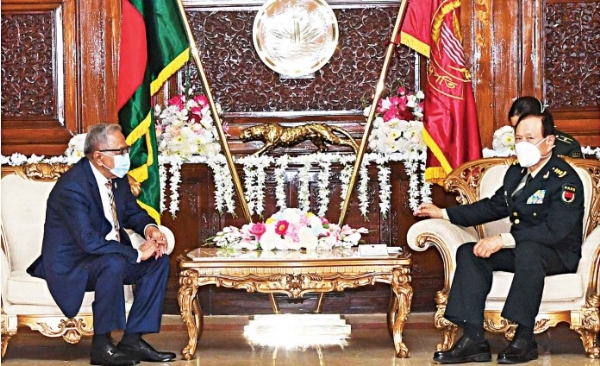China seeks coalition with Bangladesh to confront the Quad in South Asia
Total Views |
Dhaka, Apr 30: The Defence Minister of China Wei Fenghe visited Bangladesh on Tuesday, while he put forth the proposal of China and Bangladesh making joint efforts against powers from outside the region establishing a 'military alliance' in South Asia and practicing 'hegemonism'.

Wei made the remarks when he called on Bangladesh President Abdul Hamid. The two sides also agreed to advance the bilateral military cooperation, reported China's official Xinhua news agency. Wei said during his meeting with President Hamid that China and Bangladesh have been friendly neighbours since ancient time and have a long history of bilateral ties, adding that presently, both countries are at a crucial time in national rejuvenation and development, enjoying a synergy between their development strategies and a broad prospect for cooperation.
He further added that China is willing to work with Bangladesh to well implement the important consensus reached between their leaders to further develop the bilateral strategic partnership of cooperation. The State Councilor continues stating that with their cooperation being extensive, the two militaries should further increase the high-level visits, deepen cooperation in equipment technology, broaden exchanges in specialized fields, and forge closer military relations.
The backdrop of the United States, India, Australia and Japan under the Quad grouping, who have agreed to enhance their cooperation in the strategic Indo-Pacific amid growing Chinese assertiveness in the region remain to be the cause of Wei's remarks. The 'Quad' continues to be a growing concern for the Chinese, which is quite evident from the fact that China has quite often expressed it's oppose to the formation of the Quad. One of the Chinese foreign ministry spokesman has also earlier emphasized while talking about the Quad that exchanges and cooperation between countries should help expand mutual understanding and trust, instead of targeting or harming the interests of third parties.